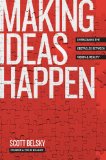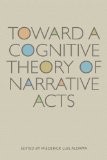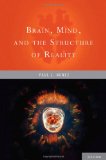two recent titles – ‘The Winner’s Brain’ & ‘Making Ideas Happen’
May 8, 2010
The Winner’s Brain: 8 Strategies Great Minds Use to Achieve Success by Jeff Brown and Mark Fenske with Liz Neporent (Da Capo Lifelong Books, 2010)
(link for UK)
Product description from the publisher:
Ever wonder why some people seem blessed with success? In fact, everyone is capable of winning in life—you just need to develop the right brain for it.
In The Winner’s Brain, Drs. Jeffrey Brown and Mark J. Fenske use cutting-edge neuroscience to identify the secrets of those who succeed no matter what—and demonstrate how little it has to do with IQ or upbringing. Through simple everyday practices, Brown and Fenske explain how to unlock the brain’s hidden potential, using:
• Balance: Make emotions work in your favor
• Bounce: Create a failure-resistant brain
• Opportunity Radar: Spot hot prospects previously hidden by problems
• Focus Laser: Lock into what’s important
• Effort Accelerator: Cultivate the drive to winAlong the way, meet dozens of interesting people who possess “win factors” (like the inventor of Whac-A-Mole™) and glean fascinating information (like why you should never take a test while wearing red). Compulsively readable, The Winner’s Brain will not only give you an edge, but also motivate you to pursue your biggest dreams.
See also: Website for the book, where an excerpt is available, plus a link to the authors’ blog and more; Article from Harvard Mental Health Letter
Making Ideas Happen: Overcoming the Obstacles Between Vision and Reality by Scott Belsky (Portfolio Hardcover, 2010)
Product description from the publisher:
How the world’s leading innovators push their ideas to fruition again and again
Edison famously said that genius is 1 percent inspiration, 99 percent perspiration. Ideas for new businesses, solutions to the world’s problems, and artistic breakthroughs are common, but great execution is rare.
According to Scott Belsky, the capacity to make ideas happen can be developed by anyone willing to develop their organizational habits and leadership capability. That’s why he founded Behance, a company that helps creative people and teams across industries develop these skills.
Belsky has spent six years studying the habits of creative people and teams that are especially productive-the ones who make their ideas happen time and time again. After interviewing hundreds of successful creatives, he has compiled their most powerful-and often counterintuitive-practices, such as:
•Generate ideas in moderation and kill ideas liberally
•Prioritize through nagging
•Encourage fighting within your teamWhile many of us obsess about discovering great new ideas, Belsky shows why it’s better to develop the capacity to make ideas happen-a capacity that endures over time.
See also: Website for the book, where an excerpt is available, and more.
Here’s a “summary preview” from readitfor.me:








